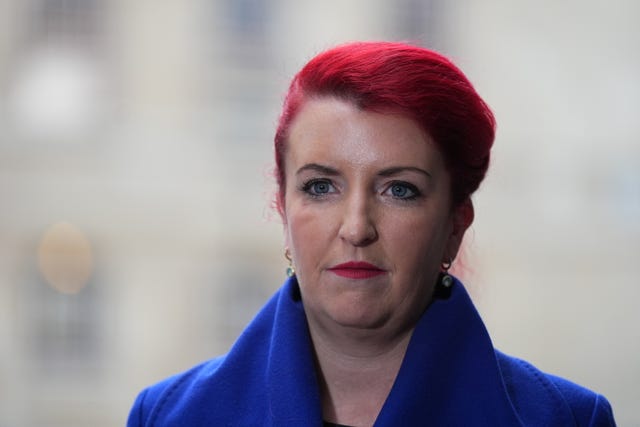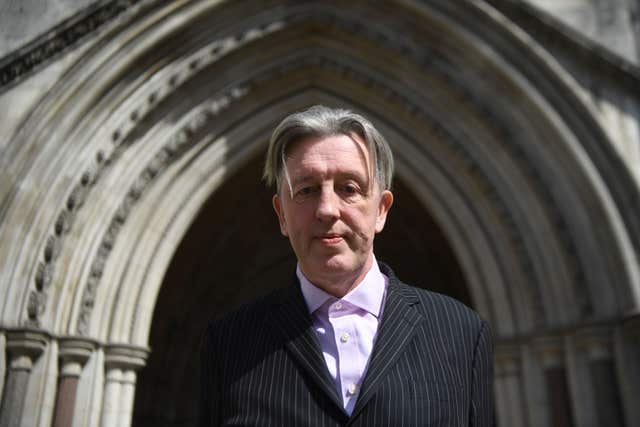
Transport Secretary Louise Haigh has declined to rule out future rail fare hikes as she set out her “priority to keep public transport affordable”.
Taking questions at the despatch box on Thursday, Ms Haigh told MPs that Labour had inherited a “mess” in the railways sector when ministers took office earlier this year.
Transport ministers also faced calls to end a “postcode lottery” which children and young people face trying to access concessionary travel across England.
Ms Haigh told the Commons: “It is this Government’s priority to keep public transport affordable, but our priority absolutely is fixing the mess of the railways that we inherited after 14 years of underinvestment, decline and putting passengers last in a broken system.”
Liberal Democrat transport spokesman Paul Kohler had said: “Affordability is also critical to increasing use of public transport. Along with hiking bus fares by 50%, the Chancellor buried on page 97 of the Budget an above-inflation rail fare increase of 4.6%.
“This kicks in from March 2025, just when we expect the rail’s road to public ownership to begin.
“Now that the railways are coming under her guardianship, can I therefore ask her to assure this House that it will be the last above inflation increase we see in this Parliament.”
According to Budget papers, the 4.6% increase in regulated ticket prices is one percentage point above RPI (retail price index) inflation.

Mr Kohler also congratulated the Government after the Passenger Railway Services (Public Ownership) Bill cleared Parliament on Wednesday and is set to become law.
The Bill enables the Government to take over railway services from private firms as their franchises expire.
The Liberal Democrat frontbencher added: “Northern Rail has been publicly owned for the last four years, running trains on tracks that have been publicly owned for over two decades.
“Sadly, however, Northern Rail still has some of the worst cancellation and punctuality rates in the country.

“Can the Secretary of State consequently tell us what she has learned from her department’s experience with Northern Rail and what else she is planning beyond nationalisation to improve the rail network?”
Ms Haigh replied: “I’ve made clear to Northern Rail that their performance isn’t acceptable. We’re addressing that through new rest-day working agreements to drive down cancellations and crucially through integrating their operations with Network Rail to deliver savings but also deliver better performance.”
Ellie Chowns, the Green Party MP for North Herefordshire, claimed young people grapple with a “postcode lottery” for concessionary bus and rail travel which pension-age passengers do not face, as a result of free bus travel through the English National Concessionary Travel Scheme (ENCTS).
“On Monday in the debate on bus services, I asked the Secretary of State about extending concessionary travel to children and young people,” she said.
“The Secretary of State’s response was to suggest that MPs should talk to their individual local authorities about this, but this is not the approach we take to concessionary travel for pensioners.
“I’ve just had contact from somebody who can’t afford to go to college aged over 16 because it would cost £1,500 per year, and her family just can’t pay that. So is it not the case that concessionary bus travel for children and young people should be extended on a national basis, rather than a postcode lottery?”
Transport minister Mike Kane replied: “As a former school teacher, I know how important education is, and children getting to education; those bus services provide vital lines.
“That is why we have put £1 billion into our bus services network, and I really do suggest that local services, as mine in the bee network in Greater Manchester have, use their resource to improve access to education for young people.”
Conservative shadow transport secretary Gareth Bacon raised changes to the bus funding formula, which Ms Haigh pledged.
Mr Bacon told MPs: “She said, and I quote, ‘the formula will allocate funding based on local need, population, the distance buses travel, and the level of deprivation. This formula and the funding allocated is a fair arrangement, ensuring that every area of the country gets the service it needs’.
“The formula, including the weighting given to various factors by (Ms Haigh) has not been published. When will it be?”
Lilian Greenwood, roads minister, replied: “We’re very proud of the work that we’ve done to ensure every part of the country is benefiting from additional funding for their buses, and we will publish that later today (Thursday).”


Why are you making commenting on The National only available to subscribers?
We know there are thousands of National readers who want to debate, argue and go back and forth in the comments section of our stories. We’ve got the most informed readers in Scotland, asking each other the big questions about the future of our country.
Unfortunately, though, these important debates are being spoiled by a vocal minority of trolls who aren’t really interested in the issues, try to derail the conversations, register under fake names, and post vile abuse.
So that’s why we’ve decided to make the ability to comment only available to our paying subscribers. That way, all the trolls who post abuse on our website will have to pay if they want to join the debate – and risk a permanent ban from the account that they subscribe with.
The conversation will go back to what it should be about – people who care passionately about the issues, but disagree constructively on what we should do about them. Let’s get that debate started!
Callum Baird, Editor of The National
Comments: Our rules
We want our comments to be a lively and valuable part of our community - a place where readers can debate and engage with the most important local issues. The ability to comment on our stories is a privilege, not a right, however, and that privilege may be withdrawn if it is abused or misused.
Please report any comments that break our rules.
Read the rules here